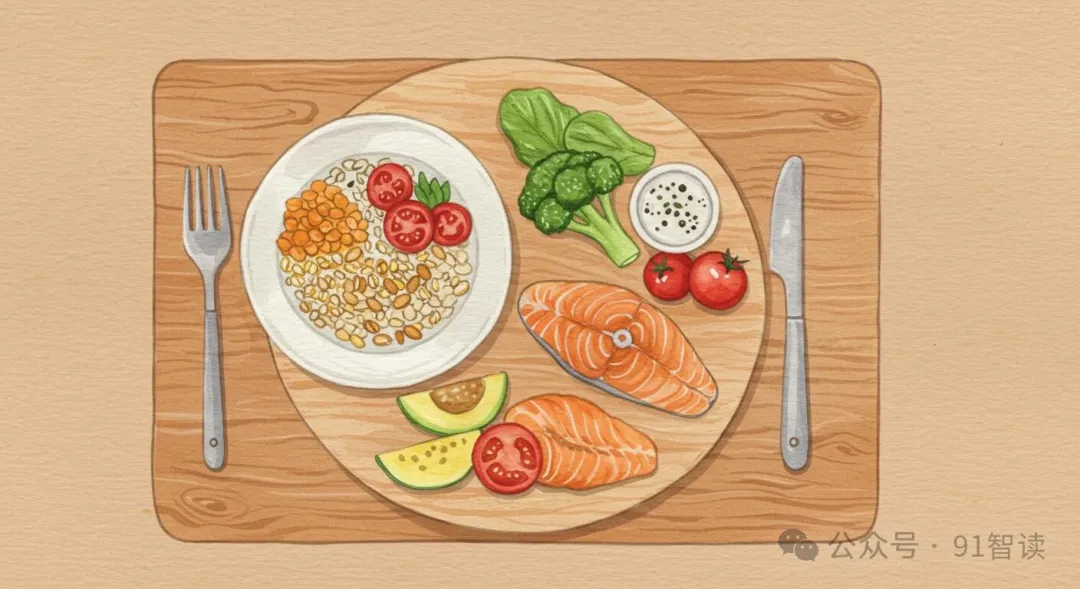The Long-Lost Buckwheat Pillow

The “rustling sound” in my ears takes me back to my childhood. After many years apart, I’ve returned to using a buckwheat hull pillow.
A few days ago, no matter how I adjusted my sleeping position, including the direction and height of my pillow, the soreness in my shoulders wouldn’t subside after waking up. The direct cause was certainly related to prolonged sitting, but lying on my pillow, I couldn’t feel any relaxation. The latex pillow seemed soft, but even after I tried adjusting my sleeping posture, I could still feel its stubborn resistance, preventing me from relaxing.
Looking back, why did I buy this latex pillow? What pillow did I use before? Ah, right, it was a memory foam pillow, and before that? Different brands, various specialized functions, different shapes of pillows - the filling material inside the pillow didn’t seem so important anymore. Thinking about this, I suddenly realized that my concept and understanding of pillows had been quietly changed without my awareness. “Pillows,” like all products around me, had been given more connotations, and I unconsciously got caught up in someone else’s game, constantly changing brands, materials, and functions. All these needs weren’t really mine but were fabricated by merchants.
We believe we’re following trends and keeping up with the times, but in reality, we’re being dragged along by commerce. We think we’re using our judgment and decision-making abilities to choose suitable products, but we’re actually selecting from options predetermined by merchants - options they want us to buy.
There’s a concept in business called “price anchoring,” which means merchants give you multiple choices or prices, but some prices are just decoys. Merchants hope to use these anchors to guide customers toward their recommended products. For example, Starbucks coffee comes in medium, large, and extra-large sizes. The medium and extra-large cups are anchors, with the large size being the main seller. When consumers see medium at 27 yuan, large at 30 yuan, and extra-large at 33 yuan, they feel the medium is “too small, not enough to drink,” while the price difference between large and extra-large (only 3-5 yuan) seems minimal. Consequently, consumers tend to abandon the medium size, believing that spending a few more yuan for a larger size is more “economical.”
Back to pillows, my son’s pillow was handmade by my mother using buckwheat hulls, and my parents still use buckwheat hull pillows. I bought them memory foam and latex pillows a few years ago, but they never used them, sticking with their buckwheat hull pillows. Partly because they’re used to it, and partly because they’re less influenced by commercial marketing.
Setting aside all those fancy functions and materials, a pillow’s function is simple: to rest your head on while sleeping. The problems I encountered were caused by my habits - I shouldn’t sit for too long and should get up to move around more. But the mindset of needing to satisfy my needs and solve my problems through “products” didn’t appear out of nowhere - it was quietly implanted by the entire commercial environment.
The flourishing development of commerce has certainly brought enormous convenience to our lives. The rich variety of products and services makes us feel that any problem can be solved by spending money, but we haven’t truly considered our essential needs.
Actually, judging whether something is a genuine need is quite simple. When facing merchant recommendations in the future, see if they’re “digging a pit” - that is, telling you where there’s a problem, magnifying that problem, and adding factors like deadlines and resource scarcity to pressure you into making quick decisions. That’s “digging a pit,” after which they use their marketed products or services to “fill the pit.” They make you feel that everything is back to normal, but not only is your wallet lighter, you’ve also bought something you never really needed.
After this long detour, I’ve returned to basics and found my way back to the buckwheat hull pillow. This pillow, free from complicated commercial hype and the “pit-digging, pit-filling” cycle, makes me feel genuinely comfortable. I no longer make excuses for my shoulder pain but face and solve the problem directly, without needing commercial products as a temporary fix.
Finally, I’d like to share my tried-and-tested anti-marketing trick that I’ve used for many years - the three principles of consumption: “Do I absolutely need to buy this today? What will happen if I don’t buy it today? If I must buy it, are there any alternatives?” The next time you encounter a “pit-digging” merchant, ask yourself these three questions. You’ll not only save money but also peace of mind! 😁
👇Scan the QR code with WeChat to follow “91WiseRead” for daily updates and growth together.

👇Welcome to add me as a WeChat friend to discuss growth stories together.

